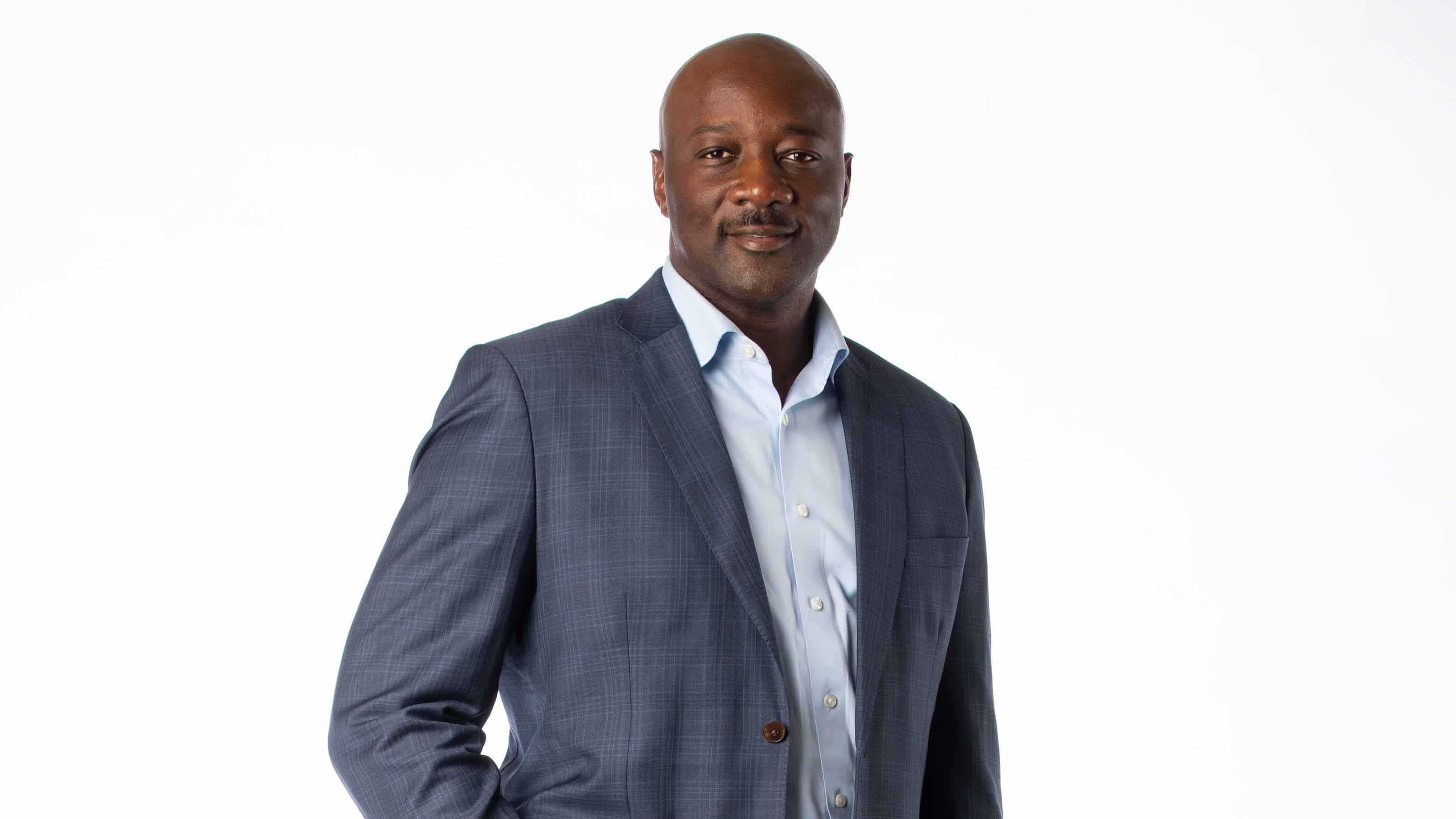Financial Advice for People at All Income Levels
We strive to include stories that are of broad interest to readers at all income levels.

Profit and prosper with the best of Kiplinger's advice on investing, taxes, retirement, personal finance and much more. Delivered daily. Enter your email in the box and click Sign Me Up.
You are now subscribed
Your newsletter sign-up was successful
Want to add more newsletters?

Delivered daily
Kiplinger Today
Profit and prosper with the best of Kiplinger's advice on investing, taxes, retirement, personal finance and much more delivered daily. Smart money moves start here.

Sent five days a week
Kiplinger A Step Ahead
Get practical help to make better financial decisions in your everyday life, from spending to savings on top deals.

Delivered daily
Kiplinger Closing Bell
Get today's biggest financial and investing headlines delivered to your inbox every day the U.S. stock market is open.

Sent twice a week
Kiplinger Adviser Intel
Financial pros across the country share best practices and fresh tactics to preserve and grow your wealth.

Delivered weekly
Kiplinger Tax Tips
Trim your federal and state tax bills with practical tax-planning and tax-cutting strategies.

Sent twice a week
Kiplinger Retirement Tips
Your twice-a-week guide to planning and enjoying a financially secure and richly rewarding retirement

Sent bimonthly.
Kiplinger Adviser Angle
Insights for advisers, wealth managers and other financial professionals.

Sent twice a week
Kiplinger Investing Weekly
Your twice-a-week roundup of promising stocks, funds, companies and industries you should consider, ones you should avoid, and why.

Sent weekly for six weeks
Kiplinger Invest for Retirement
Your step-by-step six-part series on how to invest for retirement, from devising a successful strategy to exactly which investments to choose.
Cathy, a Kiplinger’s friend on Facebook, has a request. She asks that we “profile real middle-class people who make $50K a year, not people who make $200K a year.”
Fair enough, Cathy. Let me explain that in choosing real people to profile we try to select folks who represent the whole range of income levels among our readers. Flipping through the past few issues, for example, you’ll find stories about a college student who is paying his way through school without loans, a young couple who have dug themselves out of debt, a 27-year-old woman with a modest amount in old 401(k) plans, and new parents of twins who just bought a used car for their growing family.
More broadly, we strive to include stories in every issue that are of interest to readers at all income levels. A case in point is our cover story this month, our annual guide to the best deals we’ve found on everything from stocks and ETFs to restaurant meals and running shoes.
From just $107.88 $24.99 for Kiplinger Personal Finance
Become a smarter, better informed investor. Subscribe from just $107.88 $24.99, plus get up to 4 Special Issues

Sign up for Kiplinger’s Free Newsletters
Profit and prosper with the best of expert advice on investing, taxes, retirement, personal finance and more - straight to your e-mail.
Profit and prosper with the best of expert advice - straight to your e-mail.
Everybody loves a bargain, now more than ever. With the economy less than robust, Americans seem to be experiencing a classic case of coulda, woulda, shoulda. In a recent survey by TD Ameritrade, the overwhelming number of those interviewed said that if they had known before the recession what they know now, they would have spent less and saved more and lived within their means.
In addition to the bargains we found, we suggest smart strategies for getting the best deal on anything. Plus, I’d like to contribute my two cents’ worth on how to stick to a budget and live within your means. Regardless of your income, smart money management is a matter of mind over money, and small, easy steps yield big results.
For starters, keep your goals simple. Zero in on the one thing you most want to accomplish.
Know your plastic personality. Choose a debit or credit card based on which one suits your spending habits. And don’t dismiss paying with cash, which is making a postrecession comeback.
Track your spending, if only for a month or two. Use your debit and credit card statements as a guide.
Pinpoint the one area where you’re leaking cash—restaurant meals? tech gadgets?—and staunch the flow.
Be positive. Think of budgeting as a way to control small expenses now so you can afford bigger goals later.
Tales from the trenches. Another query we often get from readers like Cathy is where to get financial advice if you don’t have the million-dollar stash that many advisers require. If you’re in that boat—and most of us are—our story Financial Planning for the Middle Class is an excellent place to start.
Maybe you’re among those who are underwater on their mortgage or facing a layoff. Ever considered converting your basement into a rental to raise cash? At least two Kiplinger’s staff members have done just that, and we show you the ins and outs.
Our story on no-contract cell-phone plans was inspired by another real person—the author herself. Staff writer Lisa Gerstner thought the $70 per month she was paying on her cell-phone contract was way out of line, so she switched to a no-contract plan that comes with unlimited texting and data, for $26.75 per month. That would fit into just about anyone’s budget.
P.S. Bet you didn’t know you had an advocate in your corner with the IRS. Meet Nina Olson.
Profit and prosper with the best of Kiplinger's advice on investing, taxes, retirement, personal finance and much more. Delivered daily. Enter your email in the box and click Sign Me Up.

Janet Bodnar is editor-at-large of Kiplinger's Personal Finance, a position she assumed after retiring as editor of the magazine after eight years at the helm. She is a nationally recognized expert on the subjects of women and money, children's and family finances, and financial literacy. She is the author of two books, Money Smart Women and Raising Money Smart Kids. As editor-at-large, she writes two popular columns for Kiplinger, "Money Smart Women" and "Living in Retirement." Bodnar is a graduate of St. Bonaventure University and is a member of its Board of Trustees. She received her master's degree from Columbia University, where she was also a Knight-Bagehot Fellow in Business and Economics Journalism.
-
 How Much It Costs to Host a Super Bowl Party in 2026
How Much It Costs to Host a Super Bowl Party in 2026Hosting a Super Bowl party in 2026 could cost you. Here's a breakdown of food, drink and entertainment costs — plus ways to save.
-
 3 Reasons to Use a 5-Year CD As You Approach Retirement
3 Reasons to Use a 5-Year CD As You Approach RetirementA five-year CD can help you reach other milestones as you approach retirement.
-
 Your Adult Kids Are Doing Fine. Is It Time To Spend Some of Their Inheritance?
Your Adult Kids Are Doing Fine. Is It Time To Spend Some of Their Inheritance?If your kids are successful, do they need an inheritance? Ask yourself these four questions before passing down another dollar.
-
 Money for Your Kids? Three Ways Trump's ‘Big Beautiful Bill’ Impacts Your Child's Finances
Money for Your Kids? Three Ways Trump's ‘Big Beautiful Bill’ Impacts Your Child's FinancesTax Tips The Trump tax bill could help your child with future education and homebuying costs. Here’s how.
-
 Key 2025 Tax Changes for Parents in Trump's Megabill
Key 2025 Tax Changes for Parents in Trump's MegabillTax Changes Are you a parent? The so-called ‘One Big Beautiful Bill’ (OBBB) impacts several key tax incentives that can affect your family this year and beyond.
-
 What Does Medicare Not Cover? Eight Things You Should Know
What Does Medicare Not Cover? Eight Things You Should KnowMedicare Part A and Part B leave gaps in your healthcare coverage. But Medicare Advantage has problems, too.
-
 QCD Limit, Rules and How to Lower Your 2026 Taxable Income
QCD Limit, Rules and How to Lower Your 2026 Taxable IncomeTax Breaks A QCD can reduce your tax bill in retirement while meeting charitable giving goals. Here’s how.
-
 How to Benefit From Rising Interest Rates
How to Benefit From Rising Interest RatesFinancial Planning Savers will get the best rates from top-yielding savings and money market deposit accounts at online banks.
-
 Donor-Advised Funds: The Gift That Keeps on Giving
Donor-Advised Funds: The Gift That Keeps on GivingFinancial Planning Expert guidance on how this charitable vehicle can make a difference.
-
 PODCAST: Tax Breaks for College Finance with Kalman Chany
PODCAST: Tax Breaks for College Finance with Kalman ChanyPaying for College Paying for (ever-pricier) college is a challenge that this consultant meets head on with highly specific guidance.
-
 Reading, Writing, and Personal Finance
Reading, Writing, and Personal FinanceRaising Money-Smart Kids A growing number of high schools are adding personal finance to their curriculum.